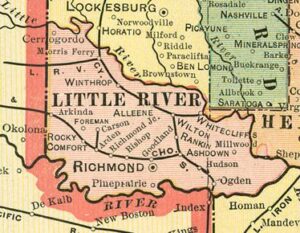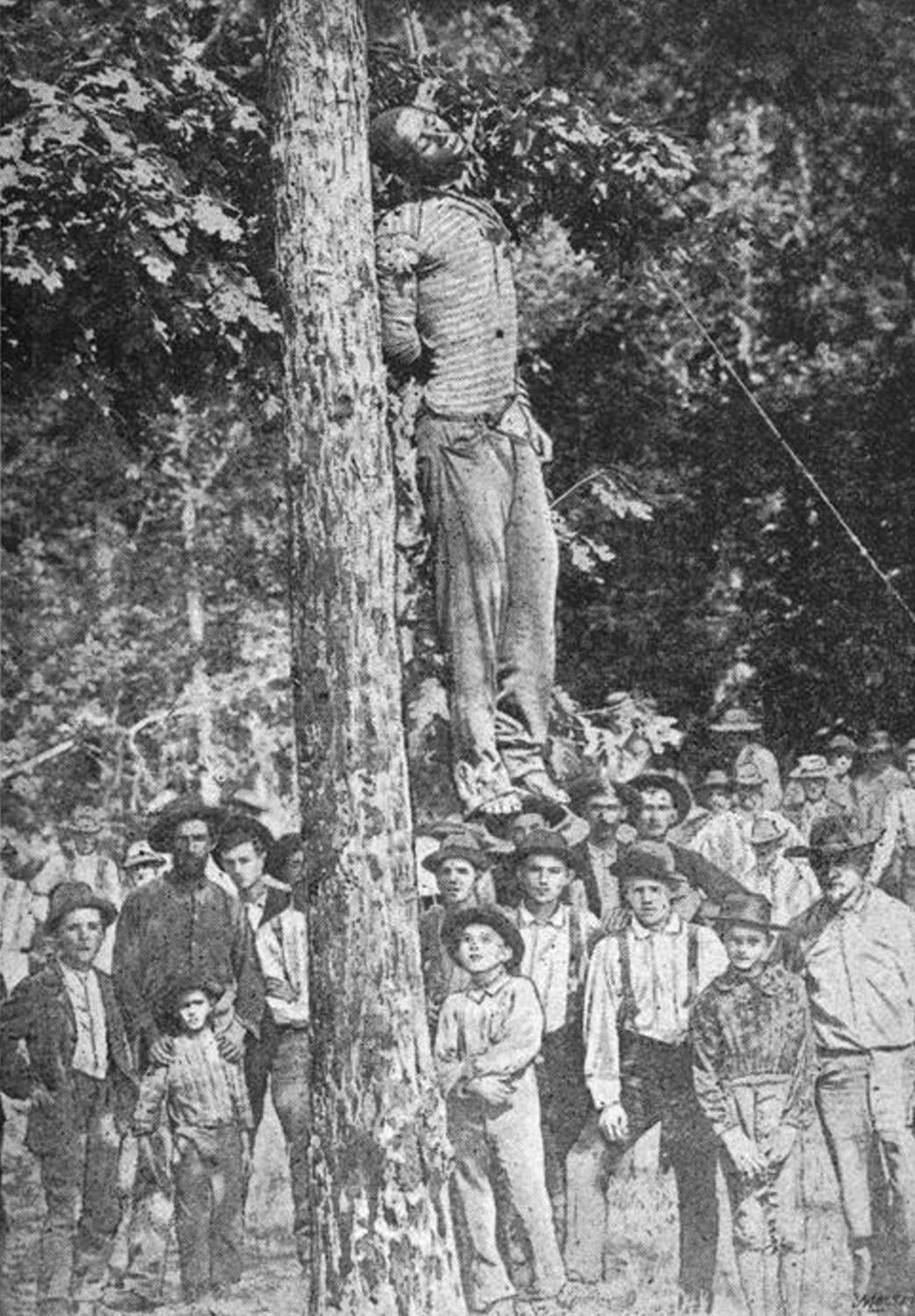The Little River County Race War began in March 1899 in southwestern Arkansas and quickly spilled over into neighboring northeastern Texas after an African American man named General Duckett murdered a white planter, James Stockton, at his home on March 18, 1899. After hiding in the Red River bottoms, Duckett surrendered on March 21, 1899. After the surrender, the Sheriff took him to the crime scene near Rocky Comfort in Little River County and escorted him to Richmond, the county seat. In some accounts, a white mob which was estimated at around 200, took Duckett from the Sheriff and hanged him. Before he was lynched, he allegedly confessed to murdering Stockton according to these accounts.
Other local newspapers reported that some African Americans who disapproved of Duckett murdering Stockton, participating in the lynching but refused to bury his body. Some reports explained that the lynching of Duckett occurred at the exact location where he murdered Stockton.
When the murder of Stockton by Duckett occurred, it was rumored that a black insurrection was being planned. According to those rumors, around thirty African Americans plotted to kill white people. According to newspaper accounts, all those in the plot were said to be known to authorities. In response, small parties of white men numbering around twenty-five to fifty went around finding and lynching African Americans suspected of being involved in the plot.

On March 23, 1899, a local Arkansas newspaper, The Mena Star reported that white men in that section of Little River County lynched seven African American men. On that same day, in nearby New Boston, Texas, an African American man named Benjamin Jones was found dead on Hurricane Bend Road, allegedly because he was involved in the plot. Two other African Americans, Joe King and Moses Jones, were found lynched near New Boston as well. Other African Americans found lynched in northeast Texas included Edwin Godwin, Joseph Jones, Adam King, and an unknown man.

Many of Little River County’s black citizens, fearing what had been occurring, fled the area. According to the Arkansas Gazette, Benjamin Jones, Joseph Jones, and Moses Jones, who were also brothers, were angry over General Duckett’s lynching and were alleged to be planning a scheme to avenge their comrade’s death. They were lynched. A few days later, the Arkansas Gazette reported the lynching but gave a different account of why the three were murdered. It now said that Joseph (Joe) King had refused to give up his gun, saying he wanted it for self-protection. The article also reported that King and one of the Jones brothers made comments about Duckett’s murder that were offensive to white residents in the area. Goodwin and Moses Jones were killed because Moses Jones’s wife had prepared food for Duckett while he was in hiding, and Goodwin had delivered it to him. Regardless of the stated reason for each lynching, it was clear that the white residents of southwest Arkansas and northeastern Texas used the violence of lynching to intimidate the African American residents in the area.
The story of the lynchings and the so-called race war in this area of the South was reported in different local newspapers for two months until May 1899, when New York Sun picked up the various accounts and it became a national story.

